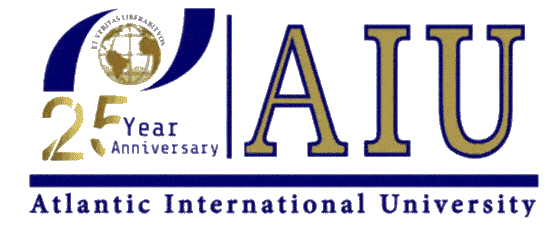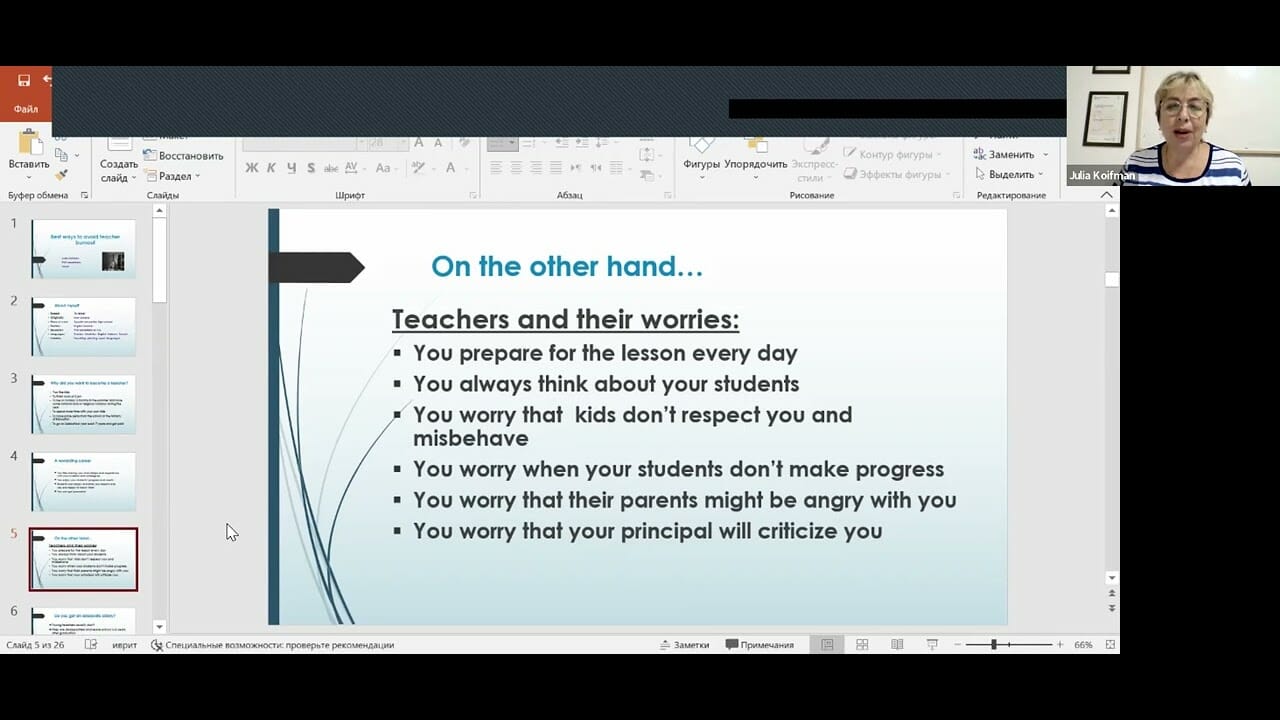- RESEARCHDistance Learning at AIU is enhanced by vast academic resources and innovative technologies build into the Virtual Campus: Hundreds of self-paced courses with video lectures and step by step lessons, thousands of optional assignments, 140,000 e-books, the Social Media & Networking platform allowing collaboration/chat/communications between students, and MYAIU develop students holistically in 11 areas beyond just academics.
- PROGRAMS OFFERED
- Areas of Study
- Courses and Curriculum
- Open Courses
- Register for a Program
- Certificate Program
-
Associate program
- Associate in Actuarial Science
- Associate in Addiction Counseling
- Associate in Agriculture Food And Resources
- Associate in Animal Science
- Associate in Anti Terrorism Security
- Associate in Behavior Analysis In Special Education
- Associate in Bioethics
- Associate in Biosystems
- Associate in Blockchain Technology & Digital Currency
- Associate in Business Communication
- Associate in Business Management
- Associate in Chemistry
- Associate in Climatology
- Associate in Cloud Computing
- Associate in Computer Engineering
- Associate in Computer Programming
- Associate in Computer Science
- Associate in Criminal Justice
- Associate in Culinary Arts
- Associate in Cultural Theological Communication
- Associate in Cybersecurity And Hacking
- Associate in Data Communication And Networking
- Associate in Database Administrator
- Associate in Early Childhood Education
- Associate in Ecotechnology
- Associate in Ecotourism
- Associate in Education
- Associate in Educational Technology
- Associate in Electric Vehicle Engineering
- Associate in Electrochemical Engineering
- Associate in Electronic Engineering
- Associate in English Literature
- Associate in Environmental Science
- Associate in eVTOL Engineering
- Associate in Fashion Design
- Associate in Fine Arts
- Associate in Foreign Trade
- Associate in Genetic Engineering
- Associate in Geography
- Associate in Geology
- Associate in Geophysical Sciences
- Associate in Graphic Design
- Associate in Health Sciences
- Associate in History
- Associate in Human Resources
- Associate in Integrated Water Management
- Associate in International Finance
- Associate in International Marketing
- Associate in Islamic Studies
- Associate in Kinesiology And Physiotherapy
- Associate in Library technology
- Associate in Linguistics
- Associate in Management
- Associate in Management Information Systems
- Associate in Maritime Management
- Associate in Metallurgy
- Associate in Micro and Multimode Grid Design
- Associate in Modern Power and Energy Systems
- Associate in Multimedia Design and Digital Art
- Associate in Nutrition
- Associate in Oil Gas And Energy Engineering
- Associate in Operations Management
- Associate in Optoelectronic Systems
- Associate in Organizational Development
- Associate in Organizational Diversity
- Associate in Pedagogical Training For Professionals
- Associate in Physical Culture And Sports
- Associate in Physics
- Associate in Public Health
- Associate in Quantum Computing Technology
- Associate in Radio And Television Production
- Associate in Scenography
- Associate in Social Media Marketing
- Associate in Sociology
- Associate in Sports Marketing
- Associate in Sports Psychology
- Associate in Sustainable Design and Construction
- Associate in Sustainable Materials Science
- Associate in Sustainable Natural Resources Management
- Associate in Sustainable Tourism
- Associate in Synthetic Biology
- Associate in Virtual Archival Science
- Associate of Adult Education
- Associate of Advertising
- Associate of Agriculture
- Associate of American History
- Associate of Biology
- Associate of Chemical Engineering
- Associate of Civil Engineering
- Associate of Communications
- Associate of Construction Management
- Associate of Economics
- Associate of Educational Administration
- Associate of Electrical Engineering
- Associate of Finance
- Associate of Healthcare Administration
- Associate of Human Resources Management
- Associate of Humanities
- Associate of Hydrology
- Associate of Industrial Engineering
- Associate of Information Systems
- Associate of Information Technology
- Associate of Interior Design
- Associate of International Relations
- Associate of Journalism
- Associate of Legal Studies
- Associate of Logistics
- Associate of Marketing
- Associate of Mass Media and Communication
- Associate of Mathematics
- Associate of Mechanical Engineering
- Associate of Mining Engineering
- Associate of Music
- Associate of Nutrition Science
- Associate of Philosophy
- Associate of Physical Education
- Associate of Political Science
- Associate of Project Management
- Associate of Psychology
- Associate of Renewable Energy
- Associate of Software Engineering
- Associate of Sport Science
- Associate of Statistics
- Associate of Strategic Management
- Associate of Technical Writing
- Associate of Telecommunications
- Associate of Theater
- Associate of Theology
- Associate of Tourism Planning and Development
- Associate of Travel and Tourism
- Associate of Unmanned Areal Systems Engineering
- Associates in Artificial Intelligence
- Associates in Engineering Systems
- Associates in Physical Anthropology
- Associates in Social Sciences
- Associates in Sociocultural Anthropology
- Associates in Systems Engineering
- Associates of Accounting
- Associates of Anthropology
- Associates of Archeology
- Associates of Architecture
- Associates of Art History
- Associates of Banking and Finance
- Associates of Business Administration
- Associates of Public Administration
- Associates of Science
- Associates of Urban Planning
- Associates of Visual and Performing Arts
- Micro and Multimode Grid Design
-
Bachelor Program
- Bachelor in Data Communication and Networking
- Bachelor in Actuarial Science
- Bachelor in Addiction Counseling
- Bachelor in Agriculture, Food and Resources
- Bachelor in Animal Science
- Bachelor in Anthropology
- Bachelor in Anti Terrorism Security
- Bachelor in Artificial Intelligence
- Bachelor in Arts in Cultural Theological Communication
- Bachelor in Autonomous Vehicle Technology
- Bachelor in Bachelor of Bioethics (BA)
- Bachelor in Behavior Analysis in Special Education
- Bachelor in Bibliotechnology
- Bachelor in Biosystems
- Bachelor in Blockchain Technology & Digital Currency
- Bachelor in Business Communication
- Bachelor in Business Management
- Bachelor in Chemistry
- Bachelor in Cloud Computing
- Bachelor in Computer Science
- Bachelor in Criminal Justice
- Bachelor in Culinary Arts
- Bachelor in Cybersecurity and Hacking
- Bachelor in Database Administrator (BS)
- Bachelor in Ecotechnology
- Bachelor in Ecotourism
- Bachelor in Education (B.Ed, BS)
- Bachelor in Educational Technology
- Bachelor in Electric Vehicle Engineering
- Bachelor in Electrochemical Engineering
- Bachelor in English Literature
- Bachelor in eVTOL Engineering
- Bachelor in Fashion Design (BA)
- Bachelor in Fine Arts
- Bachelor in Foreign Trade
- Bachelor in Genetic Engineering
- Bachelor in Geology
- Bachelor in Geophysical Sciences
- Bachelor in Graphic Design
- Bachelor in Health Sciences
- Bachelor in Integrated Water Management
- Bachelor in International Finance
- Bachelor in International Marketing
- Bachelor in Islamic Studies
- Bachelor in Kinesiology and Physiotherapy
- Bachelor in Linguistics
- Bachelor in Management
- Bachelor in Metallurgy
- Bachelor in Micro and Multimode Grid Design
- Bachelor in Modern Power and Energy Systems
- Bachelor in Multimedia Design and Digital Art
- Bachelor in Nutrigenetics
- Bachelor in Operations Management (BA)
- Bachelor in Optoelectronic Systems
- Bachelor in Organizational Development
- Bachelor in Organizational Diversity
- Bachelor in Pedagogical Training for Professionals
- Bachelor in Physical Anthropology
- Bachelor in Physical Culture And Sports
- Bachelor in Physics
- Bachelor in Public Relations
- Bachelor in Quantum Computing Technology
- Bachelor in Radio And Television Production
- Bachelor in Scenography
- Bachelor in Social Media Marketing
- Bachelor in Social Sciences
- Bachelor in Sociocultural Anthropology
- Bachelor in Sport Management
- Bachelor in Sports Marketing
- Bachelor in Sports Psychology
- Bachelor in Sustainable Design and Construction
- Bachelor in Sustainable Materials Science
- Bachelor in Sustainable Natural Resources Management
- Bachelor in Sustainable Tourism
- Bachelor in Synthetic Biology
- Bachelor in Virtual Archival Science
- Bachelor of Adult Education
- Bachelor of Advertising
- Bachelor of Animation
- Bachelor of Art History
- Bachelor of Biohacking and Nutrigenomics
- Bachelor of Educational Administration
- Bachelor of Healthcare Administration
- Bachelor of Human Resources Management
- Bachelor of Humanities
- Bachelor of Hydrology
- Bachelor of Information Technology
- Bachelor of Journalism
- Bachelor of Mass Media and Communication
- Bachelor of Mathematics
- Bachelor of Philosophy
- Bachelor of Physical Education
- Bachelor of Project Management
- Bachelor of Public Administration
- Bachelor of Software Engineering
- Bachelor of Sport Science
- Bachelor of Sports Science
- Bachelor of Statistics
- Bachelor of Strategic Management
- Bachelor of Technical Writing
- Bachelor of Theater
- Bachelor of Theology
- Bachelor of Tourism Planning and Development
- Bachelor of Travel and Tourism
- Bachelor of Unmanned Areal Systems Engineering
- Bachelor of Urban Planning
- Bachelor of Visual and Performing Arts
- Bachelor of Web Design
- Bachelors in Energy Storage and Battery Technology
- Bachelors in Accounting
- Bachelors in Accounting & Finance
- Bachelors in Agronomy Engineering
- Bachelors in Architecture
- Bachelors in Banking and Finance
- Bachelors in Biology
- Bachelors in Business Administration
- Bachelors in Chemical Engineering
- Bachelors in Civil Engineering
- Bachelors in Communications
- Bachelors in Computer Engineering
- Bachelors in Criminal Justice
- Bachelors in Early Childhood Education
- Bachelors in Economics
- Bachelors in Electrical Engineering
- Bachelors in Electronic Engineering
- Bachelors in Engineering
- Bachelors in Environmental Science
- Bachelors in Finance
- Bachelors in Finance and Banking
- Bachelors in History
- Bachelors in Hospitality Management
- Bachelors in Human Resources
- Bachelors in Industrial Engineering
- Bachelors in Information Systems
- Bachelors in Interior Design
- Bachelors in International Business
- Bachelors in International Relations
- Bachelors in Legal Studies
- Bachelors in Logistics
- Bachelors in Marketing
- Bachelors in Mechanical Engineering
- Bachelors in Mining Engineering
- Bachelors in Music
- Bachelors in Nutrition
- Bachelors in Oil Gas and Energy Engineering
- Bachelors in Political Science
- Bachelors in Psychology
- Bachelors in Public Health
- Bachelors in Renewable Energy
- Bachelors in Sociology
- Bachelors in Systems Engineering
- Bachelors in Telecommunications
- Bachelors in Zoology
-
Doctorate Program
- DBA – Doctor of Business Administration
- Doctor | in Actuarial Science
- Doctor | in Agriculture Food And Resources
- Doctor | in Animal Science
- Doctor | in Biosystems
- Doctor | in Cultural Theological Communication
- Doctor | in Cybersecurity And Hacking
- Doctor | in Early Childhood Education
- Doctor | in Ecotechnology
- Doctor | In Ecotourism
- Doctor | In Educational Technology
- Doctor | In Electronic Engineering
- Doctor | In Foreign Trade
- Doctor | of Biology (PhD)
- Doctor in Addiction Counseling
- Doctor in Behavior Analysis In Special Education
- Doctor in Bibliotechnology
- Doctor in Business Management
- Doctor in Data Communication And Networking
- Doctor of Adult Education
- Doctor of Agriculture
- Doctor of American History
- Doctor of Animation
- Doctor of Anthropology
- Doctor of Archaeology
- Doctor of Architecture (Ph.D.)
- Doctor of Art History
- Doctor of Artificial Intelligence
- Doctor of Autonomous Vehicle Technology
- Doctor of Biohacking and Nutrigenomics
- Doctor of Business Management (DBM)
- Doctor of Civil Engineering (D.Sc)
- Doctor of Cloud Computing
- Doctor of Economics (PhD)
- Doctor of Educational Administration (PhD)
- Doctor of Electric Vehicle Engineering
- Doctor of Electrical Engineering (D.Sc, PhD)
- Doctor of Electrochemical Engineering
- Doctor of Engineering Systems (D.Sc)
- Doctor of eVTOL Engineering
- Doctor of Finance (PhD)
- Doctor of Humanities
- Doctor of Hydrology
- Doctor of Industrial Engineering (D.Sc)
- Doctor of International Relations (D.Sc)
- Doctor of Legal Studies (PhD)
- Doctor of Logistics
- Doctor of Mass Media and Communication
- Doctor of Mechanical Engineering (D.Sc)
- Doctor of Micro and Multimode Grid Design
- Doctor of Mining Engineering
- Doctor of Music
- Doctor of Nutrition Science
- Doctor of Optoelectronic Systems
- Doctor of Project Management (PhD)
- Doctor of Public Administration
- Doctor of Public Health (PhD, D.Sc)
- Doctor of Quantum Computing
- Doctor of Renewable Energy
- Doctor of Sociology (PhD, D.Sc)
- Doctor of Software Engineering
- Doctor of Sport Management
- Doctor of Sport Science
- Doctor of Statistics
- Doctor of Technical Writing
- Doctor of Telecommunications (D.Sc)
- Doctor of Theater
- Doctor of Tourism Planning and Development
- Doctor of Travel and Tourism
- Doctor of Unmanned Aerial Systems Engineering
- Doctor of Visual and Performing Arts
- Doctor of Web Design
- Doctoral Degree Programs
- Doctoral in International Finance
- Doctorate in Accounting
- Doctorate in Actuarial Science
- Doctorate in Adult Counseling
- Doctorate in Advertising
- Doctorate in Agriculture Food And Resources
- Doctorate in Animal Science
- Doctorate in Anti Terrorism Security
- Doctorate in Behavior Analysis In Special Education
- Doctorate in Bibliotechnology
- Doctorate in Bioethics
- Doctorate in Biosystems
- Doctorate in Business Administration (DBA, PhD)
- Doctorate in Business Communication
- Doctorate in Business Management
- Doctorate in Chemical Engineering (D.Sc)
- Doctorate in Chemistry
- Doctorate in Clinical Nutrition
- Doctorate in Communication Online (D.Sc)
- Doctorate in Computer Engineering
- Doctorate in Computer Science
- Doctorate in Conflict Resolution & Peace Building
- Doctorate in Criminal Justice
- Doctorate in Culinary Arts
- Doctorate in Cultural Theological Communication
- Doctorate in Cyber Security & Hacking
- Doctorate in Data Communication And Networking
- Doctorate in Digital Marketing
- Doctorate in Early Childhood Education
- Doctorate in Ecotechnology
- Doctorate in Ecotourism
- Doctorate in Education
- Doctorate in Educational Technology
- Doctorate in Electronic Engineering
- Doctorate in Environmental Science
- Doctorate in Fashion Design
- Doctorate in Fine Arts
- Doctorate in Foreign Trade
- Doctorate in Genetic Engineering
- Doctorate in Geophysical Sciences
- Doctorate in Global Health
- Doctorate in Health Sciences
- Doctorate in Healthcare Administration Programs (PhD)
- Doctorate in Hospital Administration
- Doctorate in Human Resource Management (PhD)
- Doctorate in Human Resources
- Doctorate in Information Systems (D.Sc)
- Doctorate in Information Technology (D.Sc)
- Doctorate in Integrated Water Management
- Doctorate in Interior Design (PhD)
- Doctorate in International Marketing
- Doctorate in International Relations
- Doctorate in Islamic Studies
- Doctorate in Journalism (PhD)
- Doctorate in Kinesiology & Physiotherapy
- Doctorate in Linguistics
- Doctorate in Management
- Doctorate in Maritime Management
- Doctorate in Marketing (PhD)
- Doctorate in Mathematics
- Doctorate in Metallurgy
- Doctorate in Modern Power and Energy Systems
- Doctorate in Multimedia Design and Digital Art
- Doctorate in Oil Gas And Energy Engineering
- Doctorate in Organizational Development
- Doctorate in Organizational Diversity
- Doctorate in Pedagogical Training For Professionals
- Doctorate in Physical Anthropology
- Doctorate in Physical Culture And Sports
- Doctorate in Physical Education (D.Sc)
- Doctorate in Political Science
- Doctorate in Psychology (PhD, DPsy)
- Doctorate in Radio And Television Production
- Doctorate in Scenography
- Doctorate in Security Management
- Doctorate in Social Media Marketing
- Doctorate in Sociocultural Anthropology
- Doctorate in Sports Management
- Doctorate in Sports Marketing
- Doctorate in Sports Psychology
- Doctorate in Strategic Leadership
- Doctorate in Strategic Management
- Doctorate in Sustainable Design and Construction
- Doctorate in Sustainable Materials Science
- Doctorate in Sustainable Natural Resources Management
- Doctorate in Sustainable Tourism
- Doctorate in Synthetic Biology
- Doctorate in Virtual Archival Science
- Doctorate of Theology
- DS – Doctorate in Science
- Online Doctorate in Health Administration
- Online Doctorate in Hospitality
- Online Doctorate in Philosophy
- Postdoctoral in Bioethics
- School of Social and Human Studies
-
Master Program
- Master in Actuarial Science
- Master in Addiction Counseling
- Master in Agriculture Food And Resources
- Master in Animal Science
- Master in Anti Terrorism Security
- Master in Autonomous Vehicle Technology
- Master in Behavior Analysis In Special Education
- Master in Bibliotechnology
- Master in Bioethics
- Master in Biosystems
- Master in Blockchain Technology and Digital Currency
- Master in Business Communication
- Master in Business Management
- Master in Chemistry
- Master in Climatology
- Master in Cloud Computing
- Master in Computer Programming
- Master in Computer Science
- Master in Criminal Justice
- Master in Culinary Arts
- Master in Cultural Theological Communication
- Master in Cybersecurity And Hacking
- Master in Data Communication And Networking
- Master in Database Administrator
- Master in Early Childhood Education
- Master in Ecotechnology
- Master in Ecotourism
- Master in Educational Technology
- Master in Electric Vehicle Engineering
- Master in Electronic Engineering
- Master in Energy Storage and Battery Technology
- Master in Engineering Systems (MS)
- Master in Environmental Science
- Master in eVTOL Engineering
- Master in Fashion Design
- Master in Fine Arts
- Master in Foreign Trade
- Master in Geography
- Master in Geophysical Sciences
- Master in Graphic Design
- Master in Health Sciences
- Master in History
- Master in Industrial Engineering
- Master in Integrated Water Management
- Master in International Finance
- Master in International Marketing
- Master in Islamic Studies
- Master in Kinesiology And Physiotherapy
- Master in Linguistics
- Master in Management
- Master in Management Information Systems
- Master in Mass Media and Communication
- Master in Metallurgy
- Master in Micro and Multimode Grid Design
- Master in Microbiology
- Master in Modern Power and Energy Systems
- Master in Multimedia Design and Digital Art
- Master in Nutritional Science
- Master in Oil Gas And Energy Engineering
- Master in Organizational Development
- Master in Organizational Diversity
- Master in Pedagogical Training For Professionals
- Master in Philosophy
- Master in Physical Anthropology
- Master in Physical Culture And Sports
- Master in Political Science
- Master in Public Administration (MA)
- Master in Quantum Computing
- Master in Radio And Television Production
- Master in Scenography
- Master in Social Media Marketing
- Master in Social Sciences
- Master in Sociocultural Anthropology
- Master in Sociology (MA, MS)
- Master in Software Engineering
- Master in Sport Management
- Master in Sport Science
- Master in Sports Marketing
- Master in Sports Psychology
- Master in Statistics
- Master in Strategic Management
- Master in Sustainable Design and Construction
- Master in Sustainable Materials Science
- Master in Sustainable Natural Resources Management
- Master in Sustainable Tourism
- Master in Synthetic Biology
- Master in Technical Writing
- Master in Theater
- Master in Theology
- Master in Unmanned Aerial Systems Engineering (UAV and Drone Technology)
- Master in Virtual Archival Science
- Master of Adult Education
- Master of Advertising (MS, MBA)
- Master of Agriculture (MS)
- Master of American History
- Master of Animation
- Master of Anthropology (MA)
- Master of Archeology (MA)
- Master of Architecture (MS)
- Master of Art History (MA)
- Master of Artificial Intelligence
- Master of Banking and Finance (MA)
- Master of Biohacking and Nutrigenomics
- Master of Biology (MS)
- Master of Business Management (MS, MBM)
- Master of Chemical Engineering (MS)
- Master of Communications (MA, MS)
- Master of Computer Engineering
- Master of Construction Management
- Master of Economics (MS)
- Master of Electrical Engineering (MS, MSEE)
- Master of Human Resources Management (MHRM)
- Master of Humanities (MA)
- Master of Hydrology (MS)
- Master of Information Systems (MS)
- Master of Information Technology (MS, MIT)
- Master of Interior Design (MA)
- Master of International Relations (MS)
- Master of Journalism (MA, MJ)
- Master of Legal Studies (MA)
- Master of Logistics (MA)
- Master of Marketing (MS, MBA, MPA)
- Master of Mathematics (MS)
- Master of Mechanical Engineering (MS)
- Master of Mining Engineering (MS)
- Master of Music (MA)
- Master of Nutrition Science
- Master of Physical Education (MS)
- Master of Renewable Energy (MS)
- Master of Science in Educational Administration (MS)
- Master of Science in Healthcare Administration (MS)
- Master of Telecommunications (MS, M.TEL.)
- Master of Tourism Planning and Development
- Master of Travel and Tourism
- Master of Urban Planning
- Master of Visual and Performing Arts
- Master of Web Design
- Masters in Accounting
- Masters in Business Administration
- Masters in Civil Engineering
- Masters in Education
- Masters in Finance
- Masters in Human Resources
- Masters in International Relations
- Masters in Project Management
- Masters in Psychology
- Masters in Public Health
-
Postdoctoral Program
- Postdoctoral in Actuarial Science
- Postdoctoral in Addiction Counseling
- Postdoctoral in Animal Science
- Postdoctoral in Anti Terrorism Security
- Postdoctoral in Autonomous Vehicle Technology
- Postdoctoral in Behavior Analysis In Special Education
- Postdoctoral in Bibliotechnology
- Postdoctoral in Bioethics
- Postdoctoral in Biohacking and Nutrigenomics
- Postdoctoral in Biosystems
- Postdoctoral in Blockchain Technology and Digital Currency
- Postdoctoral in Business Communication
- Postdoctoral in Business Management
- Postdoctoral in Chemistry
- Postdoctoral in Cloud Computing
- Postdoctoral in Computer Engineering
- Postdoctoral in Computer Science
- Postdoctoral in Criminal Justice
- Postdoctoral in Culinary Arts
- Postdoctoral in Cultural Theological Communication
- Postdoctoral in Cybersecurity And Hacking
- Postdoctoral in Data Communication And Networking
- Postdoctoral in Early Childhood Education
- Postdoctoral in Ecotechnology
- Postdoctoral in Ecotourism
- Postdoctoral in Education
- Postdoctoral in Educational Technology
- Postdoctoral in Electrical Vehicle Engineering
- Postdoctoral in Electrochemical Engineering
- Postdoctoral in Electronic Engineering
- Postdoctoral in Energy Storage and Battery Technology
- Postdoctoral in Engineering Systems
- Postdoctoral in English Literature
- Postdoctoral in Environmental Science
- Postdoctoral in eVTOL Engineering
- Postdoctoral in Fashion Design
- Postdoctoral in Fine Arts
- Postdoctoral in Foreign Trade
- Postdoctoral in Genetic Engineering
- Postdoctoral in Geophysical Sciences
- Postdoctoral in Graphic Design
- Postdoctoral in Health Sciences
- Postdoctoral in Human Resources
- Postdoctoral in Humanities
- Postdoctoral in Integrated Water Management
- Postdoctoral in International Finance
- Postdoctoral in International Marketing
- Postdoctoral in International Relations
- Postdoctoral in Islamic Studies
- Postdoctoral in Journalism
- Postdoctoral in Kinesiology And Physiotherapy
- Postdoctoral in Linguistics
- Postdoctoral in Logistics
- Postdoctoral in Management
- Postdoctoral in Marketing
- Postdoctoral in Mass Communication
- Postdoctoral in Mathematics
- Postdoctoral in Metallurgy
- Postdoctoral in Micro and Multimode Grid Design
- Postdoctoral in Mining Engineering
- Postdoctoral in Modern Power and Energy Systems
- Postdoctoral in Multimedia Design and Digital Art
- Postdoctoral in Music
- Postdoctoral in Nutrigenetics
- Postdoctoral in Nutrition
- Postdoctoral in Oil, Gas and Energy Engineering
- Postdoctoral in Organizational Development
- Postdoctoral in Organizational Diversity
- Postdoctoral in Pedagogical Training For Professionals
- Postdoctoral in Philosophy
- Postdoctoral in Physical Anthropology
- Postdoctoral in Physical Culture And Sports
- Postdoctoral in Political Science
- Postdoctoral in Public Administration
- Postdoctoral in Public Health
- Postdoctoral in Quantum Computing
- Postdoctoral in Radio And Television Production
- Postdoctoral in Social Media Marketing
- Postdoctoral in Social Sciences
- Postdoctoral in Sociocultural Anthropology
- Postdoctoral in Sociology
- Postdoctoral in Software Engineering
- Postdoctoral in Sport Management
- Postdoctoral in Sport Science
- Postdoctoral in Sports Marketing
- Postdoctoral in Sports Psychology
- Postdoctoral in Statistics
- Postdoctoral in Strategic Management
- Postdoctoral in Sustainable Design and Construction
- Postdoctoral in Sustainable Materials Science
- Postdoctoral in Sustainable Natural Resources Management
- Postdoctoral in Sustainable Tourism
- Postdoctoral in Synthetic Biology
- Postdoctoral in Technical Writing
- Postdoctoral in Theater
- Postdoctoral in Theology
- Postdoctoral in Virtual Archival Science
- Postdoctoral of Biology
- Postdoctoral of Industrial Engineering
- Postdoctoral of Information Systems
- Postdoctoral of Legal Studies
- Postdoctoral Research in Accounting
- Postdoctoral Research in Adult Education
- Postdoctoral Research in Advertising
- Postdoctoral Research in Agriculture
- Postdoctoral Research in American History
- Postdoctoral Research in Animation
- Postdoctoral Research in Anthropology
- Postdoctoral Research in Archeology
- Postdoctoral Research in Architecture
- Postdoctoral Research in Art History
- Postdoctoral Research in Artificial Intelligence
- Postdoctoral Research in Banking and Finance
- Postdoctoral Research in Business Administration
- Postdoctoral Research in Business Management
- Postdoctoral Research in Chemical Engineering
- Postdoctoral Research in Civil Engineering
- Postdoctoral Research in Communications
- Postdoctoral Research in Economics
- Postdoctoral Research in Educational Administration
- Postdoctoral Research in Electrical Engineering
- Postdoctoral Research in Finance
- Postdoctoral Research in Healthcare Administration
- Postdoctoral Research in Human Resources Management
- Postdoctoral Research in Information Technology
- Postdoctoral Research in Interior Design
- Postdoctoral Research in International Relations
- Postdoctoral Research in Mechanical Engineering
- Postdoctoral Research in Physical Education
- Postdoctoral Research in Project Management
- Postdoctoral Research in Psychology
- Postdoctoral Research in Renewable Energy
- Postdoctoral Research in Scenography
- Postdoctoral Research in Telecommunications
- Postdoctoral Research in Tourism Planning and Development
- Postdoctoral Research in Travel and Tourism
- Postdoctoral Research in Unmanned Aerial Systems Engineering (UAV and drone technology)
- Postdoctoral Research in Urban Planning
- Postdoctoral Research in Visual and Performing Arts
- Postdoctoral Research in Web Design
- Postdoctoral Research Program
AIU offers a wide range of majors in areas including the Arts, Business, Science, Technology, Social, and Human studies. More than 120 degrees and programs are available for adult learners at the associate’s, bachelor’s, master’s, doctoral and postdoctoral level. - VIRTUAL CAMPUS
Distance Learning at AIU is enhanced by vast academic resources and innovative technologies build into the Virtual Campus: Hundreds of self-paced courses with video lectures and step by step lessons, thousands of optional assignments, 140,000 e-books, the Social Media & Networking platform allowing collaboration/chat/communications between students, and MYAIU develop students holistically in 11 areas beyond just academics.
- ALUMNI
The world is YOUR campus!”, that is the message of AIU’s month magazine Campus Mundi. Hear the voices and see the faces that make up AIU. Campus Mundi brings the world of AIU to you every months with inspirational stories, news and achievements by AIU members from around the world (students and staff are located in over 200 countries).
Bachelors in Finance
School of Business and Economics
Academic Freedom to Discover Your Purpose
Open Curriculum Design at Atlantic International University
Atlantic International University (AIU) offers an online Bachelor’s in Finance program that stands out for its flexibility, accessibility, and quality of education. This program is designed to cater to the needs of working professionals, busy individuals, and those looking for a convenient way to earn their degree in finance.
AIU’s online Bachelor’s in Finance allows students to tailor their education to fit their busy lifestyles. With the flexibility to choose when and where to study, working professionals and individuals with other commitments can earn their degree without disrupting their daily routines.
AIU’s online platform enables students from around the world to access a top-notch finance education. This international exposure enhances the diversity of perspectives in the virtual classroom, enriching the learning experience. AIU is renowned for its commitment to academic excellence. The Bachelor’s in Finance program upholds this standard with a comprehensive curriculum taught by experienced faculty members who bring real-world insights to the virtual classroom.
Pursuing a degree online often proves to be more cost-effective than traditional on-campus programs. Students can save on commuting, accommodation, and other associated costs, making quality education more accessible. Graduates of AIU’s Bachelor’s in Finance program is well-prepared for a variety of finance-related roles, including positions in banking, investment, corporate finance, and more. The program equips students with the knowledge and skills needed to excel in the competitive finance industry. Hence, AIU’s online Bachelor’s in Finance program is an excellent choice for individuals seeking a reputable finance degree while balancing other life commitments.
Important: Here’s an illustrative glimpse into potential study topics and areas you might explore throughout your academic journey. Please note, this is not an exhaustive or mandatory list, as AIU’s programs prioritize personalized learning paths over standardized curriculum. This example serves as a reference to showcase the breadth of possibilities. If you’re curious about the unique curriculum structure at AIU, would you like to delve deeper into understanding its design?
Contact Us Today!
We understand how busy adults do not have time to go back to school. Now, it’s possible to earn your degree in the comfort of your own home and still have time for yourself and your family. The Admissions office is here to help you, for additional information or to see if you qualify for admissions please contact us. If you are ready to apply please submit your Online Application and paste your resume and any additional comments/questions in the area provided.
Pioneer Plaza
900 Fort Street Mall 905
Honolulu, HI 96813
800-993-0066 (Toll Free in US)
808-924-9567 (Internationally)
808-947-2488 (Fax)
Courses and Topics in Bachelors in Finance
AIU’s online Bachelor’s in Finance offers a well-rounded curriculum covering essential topics in finance. Students delve into areas such as financial management, investment analysis, risk assessment, and corporate finance. This comprehensive approach equips graduates with the knowledge and skills necessary to excel in diverse financial roles.
The advantage lies in the program’s flexibility, allowing students to access high-quality education from anywhere, and its career-focused curriculum, enabling them to pursue lucrative opportunities in the finance sector upon completion.
- Financial Institutions and Markets
- Investments
- Advanced Corporation Finance
- International Finance
- Advanced Investments
- Financial Statement Analysis
- Financial Engineering
- Real Estate Investment Analysis
- Managerial Accounting
- Federal Personal Income Taxation
- Federal Partnership and Corporate Taxation
- International Trade and Investment
- Money, Banking, and Financial Markets
- Personal Financial Planning
Orientation Courses
Atlantic International University’s online Bachelor’s in Finance program begins with orientation courses designed to provide students with a solid foundation. These introductory courses cover essential skills, academic writing, and effective online learning strategies.
The advantage is that these orientation courses ensure that all students, regardless of their previous experience, are well-prepared to succeed in the online learning environment and excel in their finance studies. This supportive start sets the stage for a successful academic journey.
- Communication & Investigation (Comprehensive Resume)
- Organization Theory (Portfolio)
- Experiential Learning (Autobiography)
- Seminar Administrative Development (Book Summary)
- Seminar Cultural Development (Practical Experience)
- Seminar International Development (Publications)
Research Projects in Bachelors in Finance
AIU’s online Bachelor’s in Finance program places a strong emphasis on research projects as a crucial component of the curriculum. These projects are designed to develop students’ critical thinking and analytical abilities while allowing them to explore real-world financial issues.
Advantages of these research projects include hands-on experience in financial analysis, investment strategies, and risk assessment. Students gain practical insights into the finance industry, preparing them for future roles in banking, corporate finance, or investment management. Moreover, research projects foster independent learning, problem-solving skills, and the ability to present findings coherently – essential skills for success in the finance field.
By engaging in research projects, students not only deepen their understanding of finance but also develop a strong foundation for their careers, making them competitive and well-equipped for the dynamic financial landscape.
- MBM300 Thesis Proposal
- MBM302 Bachelor Thesis (5,000 words)
Publication: At AIU, we recognize the vital role of disseminating groundbreaking research. Our commitment to academic excellence extends to providing platforms for the publication of research outcomes. In the field of Finance, we encourage our students to share their innovative findings, contributing significantly to the wider academic discourse. Emphasizing the publication of student research not only elevates the practical relevance of their scholarly endeavors but also lays a lasting foundation for future scholars in the field of Finance.
The harmonious connection between research endeavors and their subsequent publication underscores our unwavering commitment to nurturing the forthcoming generation of imaginative and well-informed finance professionals. This emphasis on disseminating research findings serves as a testament to our ongoing dedication to cultivating a future cohort of resourceful and highly educated individuals in the field of finance.
Dissertation & Thesis Defense
In the final stage of the Bachelor’s in Finance at AIU, students are presented with a unique chance to demonstrate their proficiency and innovative capabilities through an extensive thesis proposal. This critical stage marks the culmination of their educational journey, providing a venue to delve into complex topics within Finance degree programs. The thesis defense, a fundamental element of the program, enables students to exhibit their research abilities, analytical thinking, and the practical use of their acquired knowledge, highlighting their preparedness to make significant contributions to the field after graduating from AIU.
Turn Your Passion for Finance into a Profession with AIU.
Apply Now for Admission
Transformative Journey of Bachelor’s Degree Student at AIU
The online Bachelor’s in Finance program at AIU offers students a transformative educational journey that prepares them for success in the dynamic world of finance. Throughout this program, students embark on a comprehensive exploration of finance principles, gaining a deep understanding of financial markets, investment strategies, risk management, and corporate finance. AIU’s commitment to excellence is evident in its curriculum, which is continuously updated to align with industry trends and demands.
One transformative aspect of this journey is the flexibility it offers. Students can access course materials and lectures from anywhere in the world, allowing them to balance their education with work, family, and other commitments. This adaptability empowers individuals to shape their learning experiences according to their unique circumstances.
Another crucial aspect is the program’s emphasis on practical application. Students engage in research projects, case studies, and simulations that simulate real-world financial challenges. This hands-on approach equips graduates with the skills and knowledge needed to thrive in finance-related careers.
In conclusion, AIU’s online Bachelor’s in Finance program provides a transformative journey by combining comprehensive finance education, flexibility, and practical experience. Graduates emerge well-prepared to navigate the complexities of the financial industry and make a meaningful impact in their chosen careers.
Community & Social
The online program at AIU cultivates an energetic community using cutting-edge technologies and collaborative tools, ensuring a nurturing academic journey. Through platforms like the Virtual Campus, Mobile APP, MYAIU, AIULink, and AIUTV, students, faculty, and alumni come together, creating a network of interconnected minds. Engaging in thought-provoking symposiums, webinars, and conferences fosters global connections among the community.
Accessing the Merlin Media Center provides a wealth of academic resources while staying linked through AIULink ensures ongoing connectivity. The AIU Virtual Campus, APP compatible with both Android and iOS, offers effortless access to programs, tools and academic resources. These platforms facilitate the sharing of personal narratives, exploring holistic development, and contributing to the betterment of humanity, shaping an AIU experience that stands unparalleled.
Academic Resources
At Atlantic International University, the Virtual Campus serves as an innovative center equipped with more than 25 specialized tools, all geared towards supporting and empowering students throughout their educational endeavors. Our newest feature, the Virtual Reality 3D immersive experience, elevates community interaction, nurturing growth, motivation, and inspiration among our diverse student population.
Also, AIU includes the leading Artificial intelligence (AI) tools such as ChatGPT, Dall-E and Midjoruney, PDF Executive Assistance, Slide Generator Slide Generator plus others and is adding new AI tools to ensure students are fluent in this emerging trend and benefit from the boost in productivity they bring.
Within our extensive online library, comprising 260,000 books and 30 million peer-reviewed articles, alongside 105,000 resources co-curated by the AIU community, we establish an unmatched academic setting dedicated to fostering the growth, development, and success of our students.
Virtual Campus
Complete assignments online or offline at your convenience with 24/7 access to distance learning through AIU’s Virtual Campus. Step by Step guides including videos, tutorials, live webinars and examples for each course. All materials can be access on all web browsers as well as via AIU's Mobile App which brings all the features of the Virtual Camus to your Mobile Device.
My AIU Elements
MyAIU’s primary goal is to go beyond Academics, it looks to guide students through 11 elements that are key to living life optimally in all aspects. By identifying and reflecting on these key areas, an opportunity arises to holistically address them, through positive change, habits, reinforcement and tools to keep students on their chosen path.
AIU TV & Radio
The students have the opportunity to produce, edit and host their own show reaching a worldwide audience, the AIU community and giving notice of their expertise/passion in the subject. AIUTV & AIU Radio allow students to explore new ways to communicate, develop a platform and form potential collaboration with likeminded individuals.
AIU Campus Mundi
AIU Campus Mundi is a monthly magazine that gathers the most notable news and information about the university and its members in one convenient place. The magazine allows our community to be well informed, involved and keep in tough regardless of their geographic location. AIU Campus Mundi publishes, news, research, events, awards, academic achievements.
Graduation Ceremony
Each year AIU organizes graduation ceremonies where the students can assist and share their experiences with fellow students and academic members Participation in the ceremony is optional, the day’s events include conferences, research presentations, group meetings, networking, lunch and formal dinner.
Symposiums & Webinars
At AIU, our symposiums stand as crucial centers for knowledge and innovation, creating an active space for Bachelor in Finance. These events play a vital role in sharing pioneering research, encouraging vibrant exchanges of ideas, and nurturing lively discussions. By participating in these symposiums, individuals receive invaluable exposure to a wide array of perspectives, sparking collaborative research initiatives that consistently push the boundaries within the field of Finance.
Live Classes
AIU introduces an innovative approach to virtual learning by incorporating dynamic live sessions twice daily. One can also access these live classes from the archive that hosts 100s of classes that can be combined to personalize the academic journey of a student. Led by seasoned faculty and experts from various industries, these sessions offer real-time discussions, interactive Q&A segments, and collaborative problem-solving, enriching your comprehension of community and public health.
Participating in these sessions augments your expertise, equipping you to shape policies and refine your skills in hospitality. AIU’s live classes promise intellectually engaging dialogues, up-to-the-minute industry perspectives, and personalized feedback from instructors, guaranteeing a rewarding journey through the study of Finance.
Following are the live classes you can check if you are interested in studying Bachelors in Finance.
Global macro outlook for 2024 expectations and challenges by Abdulkadir Dogan/ Macro Development & Current Challenges in Financial Market by Abdulkadir Dogan/ International money market and collateral issues by Abdulkadir Dogan
Special Projects, Research, Publications, and Co-Authoring
AIU’s Bachelor’s in Finance fosters a dynamic academic environment where students engage in special projects, conduct research, and collaborate on publications. Through hands-on projects, students explore real-world applications. They actively participate in research initiatives, gaining insights into cutting-edge developments. The program encourages co-authoring publications, enabling students to contribute to scholarly discourse and cultivate a robust professional portfolio.
Invest in Your Future with AIU’s Bachelor’s Degree in Finance.
Explore Our Live Classes
Career Center for Bachelors in Finance
The Career Center at Atlantic International University is a valuable resource for students pursuing a Bachelor’s in Finance. This center offers a range of services tailored to help students kickstart their finance careers successfully.
Firstly, it provides access to a vast network of finance industry professionals, facilitating networking opportunities and mentorship. Additionally, the center offers career counseling, resume building, and interview preparation to enhance students’ job search strategies.
Furthermore, AIU’s Career Center keeps students informed about job openings and internships in the finance sector, ensuring that they are well-equipped to explore and pursue rewarding career opportunities upon graduation.
Job Description
A Bachelor’s in Finance from Atlantic International University prepares graduates for a wide array of finance-related roles. As financial analysts, they evaluate financial data, assess investment opportunities, and provide recommendations to individuals and organizations for sound financial decision-making.
Graduates can also excel as financial managers, overseeing an organization’s financial health, budgeting, and financial reporting. In addition, careers in banking as loan officers or financial advisors are common paths, where they guide clients in managing their finances, loans, and investments. With their strong foundation in finance principles, AIU graduates are well-equipped to thrive in these diverse and lucrative finance roles.
Employment Opportunities for Bachelors in Finance
- Financial Analyst: Graduates can work as financial analysts, conducting in-depth research, analyzing financial data, and providing recommendations for investment strategies and portfolio management.
- Financial Manager: Many find rewarding careers as financial managers, overseeing an organization’s financial health, budgeting, financial planning, and financial reporting.
- Banking Professional: Opportunities in banking abound, with roles such as loan officers, branch managers, and credit analysts. These positions involve managing loans, assessing creditworthiness, and providing financial advice to clients.
- Investment Analyst: Graduates can work as investment analysts, evaluating investment opportunities, analyzing market trends, and making informed investment decisions on behalf of clients or organizations.
- Financial Advisor: Becoming a financial advisor allows individuals to guide clients in managing their finances, including investments, retirement planning, and wealth management.
- Risk Analyst: Risk analysts assess and manage financial risks within organizations, ensuring they make informed decisions to mitigate potential losses.
- Corporate Finance Professional: Graduates can work in corporate finance departments, managing finances, optimizing capital allocation, and helping organizations make strategic financial decisions.
- Insurance Specialist: Opportunities in the insurance sector include roles as underwriters, claims adjusters, and risk assessors, where graduates evaluate and manage risks for insurance companies.
- Financial Consultant: Financial consultants offer their expertise to businesses and individuals, providing advice on financial planning, investments, and overall financial strategies.
- Government Positions: Some graduates may explore finance-related roles in government agencies, such as tax examiners, revenue agents, or financial examiners.
- Entrepreneurship: Graduates with an entrepreneurial spirit can use their finance knowledge to start and manage their businesses, from small startups to larger ventures.
AIU’s comprehensive finance program equips graduates with the skills, knowledge, and critical thinking abilities needed to excel in these diverse and rewarding employment opportunities within the finance industry and beyond.
Tools for Professionals with Bachelors in Finance
Professionals with a Bachelor’s in Finance can benefit from various tools and software to enhance their work efficiency and financial analysis capabilities. Here is a list of some useful tools:
Associations for Professionals with Bachelors in Finance
Here are some prominent associations and organizations for professionals with a Bachelor’s in Finance:
CFA Institute: The CFA Institute offers the Chartered Financial Analyst (CFA) designation, one of the most respected credentials in the finance industry. They provide a wealth of resources, networking opportunities, and continuing education for finance professionals.
Financial Planning Association (FPA): FPA is a leading organization for financial planners, offering education, advocacy, and networking opportunities. They promote excellence in financial planning and provide resources for members.
National Association of Personal Financial Advisors (NAPFA): NAPFA is a professional association of fee-only financial advisors committed to high ethical standards and fiduciary duty. They offer support, education, and resources for financial advisors.
American Finance Association (AFA): AFA is a scholarly organization dedicated to the study and promotion of finance and financial economics. It hosts conferences, publishes journals, and connects finance researchers and academics.
Association for Financial Professionals (AFP): AFP is a global resource for treasury and finance professionals. They offer certifications, educational resources, and a platform for networking and sharing best practices.
Institute of Management Accountants (IMA): IMA is a global association for management accountants. They provide the Certified Management Accountant (CMA) certification and offer resources, education, and networking opportunities.
American Finance Association (AFA): AFA is a scholarly organization dedicated to the study and promotion of finance and financial economics. It hosts conferences, publishes journals, and connects finance researchers and academics.
Join the Finance Leaders of Tomorrow with AIU’s Program.
Request for more information
Requirements for Bachelors in Finance
The requirements for a Bachelor’s in Finance program can vary by institution, but here are the common prerequisites you may encounter:
- High School Diploma or Equivalent: Typically, applicants must have a high school diploma or an equivalent qualification, such as a General Educational Development (GED) certificate.
- Transcripts: You will need to provide your high school transcripts or records, demonstrating your academic performance.
- Standardized Tests: Some universities or colleges may require standardized test scores like the SAT or ACT, although this requirement is becoming less common for finance programs.
- Language Proficiency: For international students, proof of English language proficiency through tests like TOEFL or IELTS may be necessary.
- Application Form: Complete the university’s application form, which can usually be submitted online or through a paper application.
- Letters of Recommendation: Some institutions request letters of recommendation from teachers, counselors, or other individuals who can speak to your academic abilities and character.
- Statement of Purpose or Personal Essay: Write an essay or statement of purpose explaining your motivation for pursuing a Bachelor’s in Finance and your career aspirations.
- Interview: In some cases, universities may conduct interviews as part of the admissions process.
- Prerequisite Courses: Certain programs may require specific high school courses in mathematics, economics, or related subjects.
- Application Fee: Be prepared to pay an application fee, which varies by institution.
It’s important to note that specific admission requirements can vary widely among universities and colleges, so it’s advisable to check the prerequisites for the specific institutions and programs you are interested in. Additionally, some universities may have different admission criteria for transfer students or international applicants.
How Can You Apply?
To apply for a Bachelor’s in Finance program, follow these general steps:
- Research Programs: Start by researching universities or colleges that offer Bachelor’s in Finance programs. Consider factors like location, reputation, and program curriculum.
- Meet Admission Requirements: Review the specific admission requirements for each institution, which typically include a high school diploma or equivalent, standardized test scores, language proficiency (for international students), transcripts, letters of recommendation, and a statement of purpose.
- Prepare Documents: Gather all required documents, such as transcripts, test scores, and letters of recommendation. Be sure to meet application deadlines.
- Complete Application Form: Fill out the university’s application form online or on paper. Pay the application fee, if required.
- Write a Personal Statement: Craft a compelling personal statement or essay that explains your interest in finance and your career goals.
- Submit Application: Submit your application along with all required documents to the university’s admissions office.
- Interview (if necessary): Some institutions may require an interview as part of the admissions process.
- Await Admission Decision: Wait for the university to review your application and make an admission decision.
- Financial Aid: If needed, explore financial aid options such as scholarships, grants, or student loans to fund your education.
- Acceptance and Enrollment: If accepted, follow the instructions provided to officially enroll in the program.
Remember that specific application procedures and requirements may vary among institutions, so it’s essential to carefully review each university’s admission guidelines and deadlines to ensure a successful application process.
Financial Support & Scholarships
We are thrilled to offer a range of scholarships tailored for our undergraduate students. Please provide your information to explore various scholarship opportunities designed to support your academic pursuits. Let us assist you in achieving your educational goals and nurturing your scholarly ambitions.
How Much Does Bachelors in Finance Cost Per Year?
We recognize the significance of financial flexibility in your educational endeavors. Hence, depending upon the type of program you choose, we have introduced a convenient monthly payment plan to make your pursuit of a bachelor degree manageable and free from financial worries. Our exceptionally affordable tuition fee covers the expense Bachelors in Finance. So, secure your future with AIU, where first-rate education aligns perfectly with your budget. Your aspirations are well within your grasp.
FAQs
Career opportunities for finance graduates?
Finance graduates have a myriad of career opportunities. They can pursue roles such as financial analysts, where they analyze data and offer investment advice. Becoming financial managers allows them to oversee an organization’s financial health. Opportunities in banking include loan officers and branch managers, while investment analysts evaluate investment opportunities. Financial advisors guide clients in managing their finances, while risk analysts assess and manage financial risks. Corporate finance roles involve managing finances within organizations. Graduates can also explore opportunities in insurance, government positions, entrepreneurship, and more. Their finance expertise opens doors to diverse and rewarding careers across various industries.
Specialization options in finance during bachelor's studies?
During Bachelor’s studies in finance, students often have the opportunity to specialize in various areas within finance. Common specializations include:
- Investment Finance: Focusing on securities analysis, portfolio management, and investment strategies.
- Corporate Finance: Concentrating on financial management, budgeting, and capital allocation within organizations.
- Financial Planning: Emphasizing personal financial planning, wealth management, and retirement planning.
- Risk Management: Exploring techniques to identify, assess, and mitigate financial risks in businesses.
- Banking and Financial Services: Covering topics related to banking operations, credit analysis, and financial institution management.
- International Finance: Examining global financial markets, foreign exchange, and international investment.
These specializations allow students to tailor their studies to align with their career goals and interests in the finance field.
Skills developed through a Bachelor's in Finance program?
A Bachelor’s in Finance program equips students with a diverse set of skills essential for success in the finance industry and beyond. These skills include:
- Financial Analysis: The ability to evaluate financial data and make informed decisions.
- Critical Thinking: Developing analytical and problem-solving skills.
- Communication: Effectively conveying complex financial information to colleagues and clients.
- Quantitative Proficiency: Competence in mathematics and statistical analysis.
- Risk Management: Identifying and mitigating financial risks.
- Budgeting: Creating and managing budgets for individuals and organizations.
- Ethical Judgment: Making principled financial decisions.
- Research: Conducting thorough financial research.
- Adaptability: Navigating changing financial landscapes and regulations.
- Teamwork: Collaborating effectively in group settings.
These skills prepare graduates for a wide range of finance-related careers and provide a strong foundation for success in various industries.
Admission requirements for a Bachelor's in Finance program?
Admission requirements for a Bachelor’s in Finance program may vary by institution, but here are some common prerequisites:
- High School Diploma or Equivalent: Typically, applicants must have a high school diploma or an equivalent qualification, such as a GED.
- Transcripts: Submission of high school transcripts or records demonstrating a satisfactory academic performance.
- Standardized Tests: Some universities may require standardized test scores like the SAT or ACT, although this requirement is becoming less common.
- Language Proficiency: For international students, proof of English language proficiency through tests like TOEFL or IELTS may be necessary.
- Application Form: Completion of the university’s application form, which may be submitted online or through a paper application.
- Letters of Recommendation: Some institutions request letters of recommendation from teachers or counselors.
- Statement of Purpose: A written essay or statement of purpose explaining the applicant’s motivation for pursuing a Bachelor’s in Finance.
- Interview: In some cases, universities may conduct interviews as part of the admissions process.
- Prerequisite Courses: Certain programs may require specific high school courses in math or related subjects.
- Application Fee: Payment of an application fee, which varies by institution.
Prospective students should always check the specific requirements of the university or college they are interested in, as requirements may differ from one institution to another. Additionally, some universities may have different admission criteria for transfer students or international applicants.
Contact Us
Atlantic International University
900 Fort Street Mall 905 Honolulu, HI 96813
Quick Links
Home | Spanish | Online Courses | Available Courses | Vrtual Campus | Career Center | Available Positions | Ask Career Coach | The Job Interview | Resume Writing | Accreditation | Areas of Study | Bachelor Degree Programs | Masters Degree Programs | Doctoral Degree Programs | Course & Curriculum | Human Rights | Online Library | Representations | Student Publication | Sponsors | General Information | Mission & Vision | School of Business and Economics | School of Science and Engineering | School of Social an Human Studies | Media Center | Admission Requirements | Apply Online | Tuition | Faculty & Staff | Distance Learning Overview | Student Testimonials | Frequently Asked Questions | Register for Program | Privacy Policy | FAQ



























